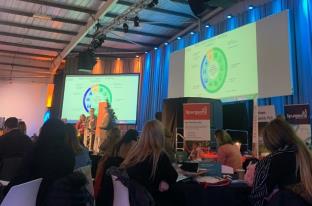Supporting Families Phase 3 – are you ‘data ready’ for the transition?
July 2022 | News
With its more prescriptive and more complex Outcomes Framework, Phase 3 of the Supporting Families programme poses fresh data management challenges for local authorities, says Sentinel Partners director, Graham McCusker.
Ahead of the programme’s launch in October, teams will need to prepare for the transition while also continuing to manage Phase 2. That preparation will include the submission of their Outcomes Framework to the National Team while completing a gap analysis on all the data they do not yet use on the programme.
While Phase 3 will begin in October for eligibility and new attachments, Phase 2 PBR will continue until July 2023, meaning a nine-month period when the two programmes will be running in parallel.
Challenges
The differences between Phase 2 and Phase 3 present several challenges.
Looking at the eligibility and outcomes criteria, for Phase 2 there was a need to satisfy two out of six qualifying categories, whereas for Phase 3, it’s three out of ten. Additionally, for Phase 3, criteria within each category is tightly controlled and nationally standardised, there is no longer any scope for local interpretation and local priorities.
While this may not necessarily sound like a huge change, the more complex nature of the nationally prescribed criteria will certainly have a significant impact. We have experienced this at first hand as we have already completed upgrading our new profiling logic in preparation of the Phase 3 upgrade for our clients. We are acting quickly on this as one of our clients is Liverpool, who have been asked by DLUHC to be an early adopter for Phase 3 and so will begin their transition in July.
Multi-dimensional data requirements
Looking through the criteria for the new Outcomes Framework, we can see this additional complexity across most of the categories.
Using the ‘Getting a good education’ criteria as a typical example, one of the family needs is “An average of less than 50% attendance unauthorised and authorised for two consecutive terms.” The corresponding evidence required to show sustained improvement is “At least a 30% improvement in attendance, with a minimum of 50% average attendance, over two consecutive terms.”
Such multi-dimensional data requirements – part of a focus on Whole Family Working – can be found throughout the Phase 3 framework, meaning local authorities will struggle without precise data feeds and an ability to integrate and profile them in the right way.
Benefits of data integration
Local authorities still relying on spreadsheets, stand-alone databases/reports, or case management solutions will soon encounter a pressing need for change, whilst those using a true data integration platform will have a great advantage.
We have already completed most of the technical changes in our Supporting Families Data Platform to cater for the Phase 3 requirements and dual processing transition. We have enhanced our profiling rules for both eligibility and PBR assessments, created a second PBR process to manage both regimes in parallel, are working on gap analysis with our existing clients to help understand any new data requirements. We are also creating the new DWP data interface to receive Universal Credit data when this replaces the old ADMS feed.
Our preparations will ensure that existing clients, including Liverpool, Birmingham (Children’s Trust), Devon County Council, London Borough of Tower Hamlets, St Helens MBC, North Lincolnshire, North East Lincolnshire and Portsmouth are able to hit the ground running as they enter into Phase 3.
Helping you
We can help your local authority make this transition too. With our flexible software and agile approach, we can implement new systems for clients in as little as four weeks. Where appropriate, we can also provide ‘Proof-of-Concept’ free trial periods to help new clients to get started on their data transformation.
If you would like to find out more about how we can transform your use of data, make the most of the Supporting Families programme as a driver for change, and improve your ranking on the Government's Data Maturity Model, please contact us.



